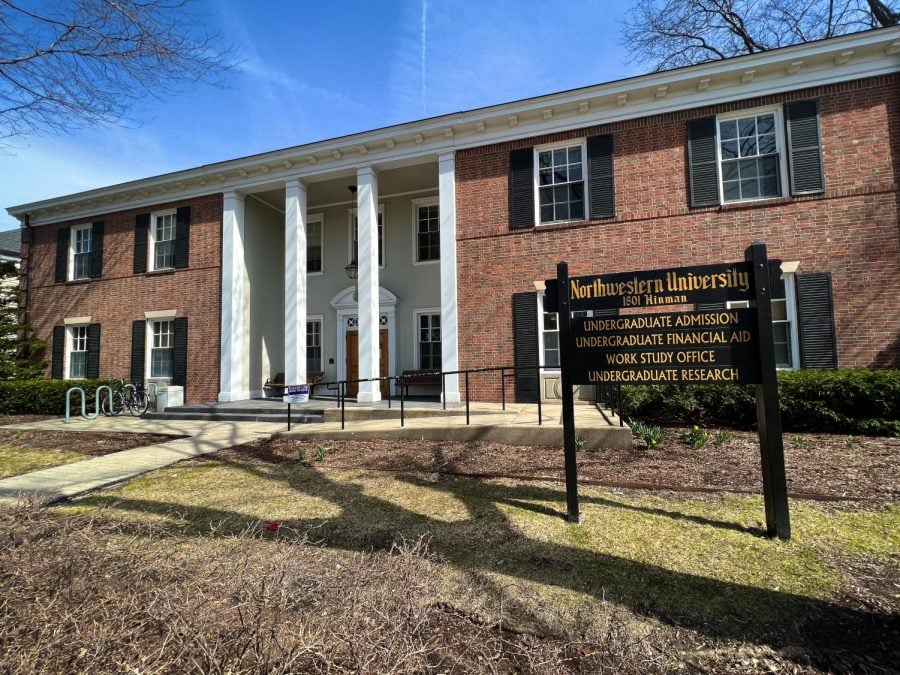Office of Undergraduate Research suspends URAP due to rise in SURG applications
Kimberly Espinosa/Daily Senior Staffer
The Office of Undergraduate Research. OUR decided to cancel the Undergraduate Research Assistant Program for summer 2023 in order to fully finance the Summer Undergraduate Research Grant.
April 3, 2023
Weinberg junior Jane Mavis was planning to work in a Northwestern clinical psychology lab this summer. It would have been one of her first experiences in a formal research setting, which she said would be critical for both solidifying her interest in psychology and bolstering her looming graduate school applications.
But when the Office of Undergraduate Research suspended its Undergraduate Research Assistant Program for summer 2023, Mavis’ hopes of investigating mood-reading and emotion recognition were suddenly up in the air.
“For me, it’s a big source of anxiety,” Mavis said. “I have next-to-no lab experience, so URAP was very much going to be something that got me comfortable in that kind of setting.”
URAP financially supports undergraduate students to work on faculty projects, catering to those with less research experience who want to receive more guidance from academic experts. Along with opportunities like the Summer Undergraduate Research Grant, which awards recipients a $4,000 stipend to lead their own independent projects, URAP is one of OUR’s flagship research funds.
This year, however, SURG received 480 applications, 156 more than last year. According to OUR Director and Communication Prof. Peter Civetta, a faculty review committee selects grant proposals for funding solely based on merit, which means OUR’s budget doesn’t restrict the number of awards.
Rather than change the review process for SURG, Civetta said the office decided to shut down URAP before applications opened for the summer. The funds originally intended for URAP will be redirected to SURG.
“It felt unfair and inequitable for us to change the rules in the middle, after everybody’s already applied,” Civetta said. “We felt like, ‘OK, if we’re going to continue to run this review process the way that we’re running it, we’re going to need more money.’ And the only way we can do that is either by arbitrarily decreasing the number of awards that are given to URGs, or (suspending) URAP.”
Because the SURG application review process is ongoing, Civetta said the total amount of money required to finance the grants is still unknown. But, he said the number of applicants exceeded what he had initially predicted enough that he wanted to act quickly to notify students and faculty of URAP’s suspension before deadlines passed for other University research funding opportunities.
Civetta added that he has had to reach out to other partners and institutions for additional funding and is still unsure whether there will be enough funds to fully cover SURG recipients.
Although the URAP suspension announcement directed students toward other NU grants, students planning on applying, like Mavis, expressed disappointment and surprise at the cancellation.
Communication sophomore Diana Deng was set on researching the archives of political activist and former English Prof. Dennis Brutus with English and comparative literary studies Prof. Harris Feinsod until she learned about the suspension.
Deng said she and Feinsod are pivoting by applying for a grant from the Alice Kaplan Institute for the Humanities. But, she now feels unsure the opportunity will pan out.
“This definitely poses a lot of uncertainties to our original plan. Personally, I feel really insecure because my summer has been planned around this research project,” Deng said. “This is something I really want to accomplish.”
Medill Prof. Karen Springen, who hired two students through URAP last summer for her research on journalists’ social media use, said she understands why OUR is prioritizing students’ ideas.
Springen added that she had to reject more than 20 applicants to work on her URAP project and prefers to be able to freely sign on to student-led initiatives.
“To me, the priority is for students and faculty to work together on wonderful research projects,” Springen said. “I am fine if it’s the student’s great idea instead of my own idea.”
Some students who previously participated in URAP also lamented its stoppage for this summer.
Weinberg sophomore Sophia Huang worked in Feinberg Prof. Gregory Phillips II’s lab during summer 2022, investigating alcohol and drug use among racial and sexual minority youth as part of a URAP project. She continued to work in Phillips II’s lab throughout the academic year and said the experience taught her the basics of conducting research.
Weinberg junior Elizabeth Vazquez researched racial terminology in anthropology journals with anthropology Prof. Erin Waxenbaum in summer 2021. Vazquez said she “adored” her URAP experience and added that it helped prepare her to become a Leopold fellow for the history department and participate in SURG the following year.
“Anyone can have their own journey and their own path with research, but I will say it really sucks that URAP isn’t around anymore,” Vazquez said. “It’s very comforting for if you have no idea what research even is, to have someone to be like, ‘Let me show you what research is.’”
Email: russellleung2024@u.northwestern.edu
Twitter: @rjleung7
Related Stories:
— Fletcher Awards granted to undergraduate research and faculty advisers
— NU students take advantage of summer research opportunities
— NU Declassified: Three Northwestern students wrote a musical this summer



